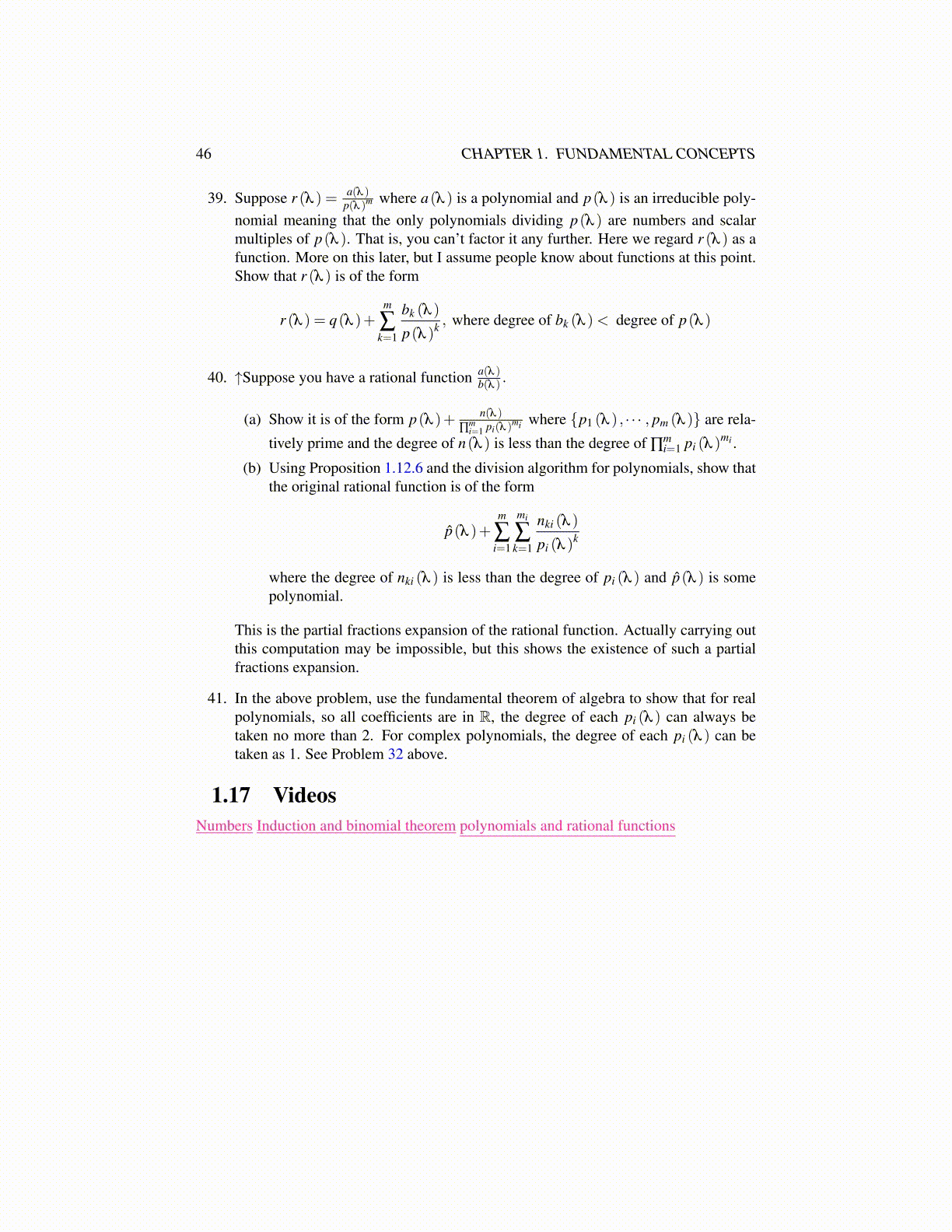
46 CHAPTER 1. FUNDAMENTAL CONCEPTS
39. Suppose r (λ ) = a(λ )p(λ )m where a(λ ) is a polynomial and p(λ ) is an irreducible poly-
nomial meaning that the only polynomials dividing p(λ ) are numbers and scalarmultiples of p(λ ). That is, you can’t factor it any further. Here we regard r (λ ) as afunction. More on this later, but I assume people know about functions at this point.Show that r (λ ) is of the form
r (λ ) = q(λ )+m
∑k=1
bk (λ )
p(λ )k , where degree of bk (λ )< degree of p(λ )
40. ↑Suppose you have a rational function a(λ )b(λ ) .
(a) Show it is of the form p(λ )+ n(λ )∏
mi=1 pi(λ )
mi where {p1 (λ ) , · · · , pm (λ )} are rela-
tively prime and the degree of n(λ ) is less than the degree of ∏mi=1 pi (λ )
mi .
(b) Using Proposition 1.12.6 and the division algorithm for polynomials, show thatthe original rational function is of the form
p̂(λ )+m
∑i=1
mi
∑k=1
nki (λ )
pi (λ )k
where the degree of nki (λ ) is less than the degree of pi (λ ) and p̂(λ ) is somepolynomial.
This is the partial fractions expansion of the rational function. Actually carrying outthis computation may be impossible, but this shows the existence of such a partialfractions expansion.
41. In the above problem, use the fundamental theorem of algebra to show that for realpolynomials, so all coefficients are in R, the degree of each pi (λ ) can always betaken no more than 2. For complex polynomials, the degree of each pi (λ ) can betaken as 1. See Problem 32 above.
1.17 VideosNumbers Induction and binomial theorem polynomials and rational functions